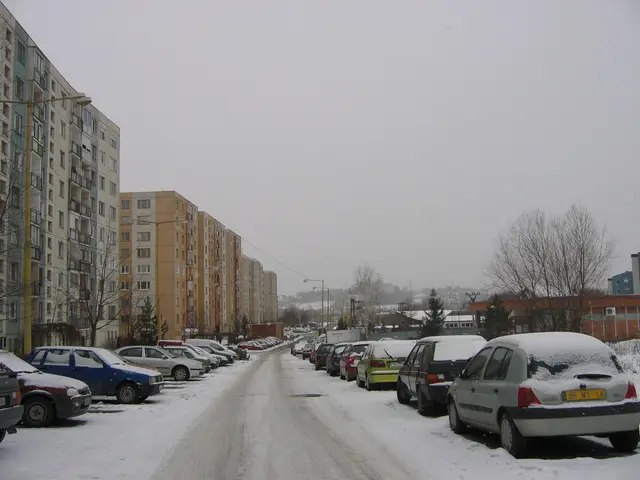Tangled Borders: Poland Braces for Germany's Stiffened Frontier Measures
Poland seeks technical methods for border enforcement
Germany recently kicked off a series of tightened border control measures, as instructed by the new Interior Minister, sparking unease – particularly in Poland. Foreign Minister Sikorski claimed these measures would cause "significant discomfort" for the populace.
In response to Germany's ordinance for enhanced border controls, Poland has issued a warning on potential disruptions to frontier traffic. Although comprehending Germany's border-related priorities, Sikorski emphasized the necessity to develop "innovative solutions" to minimize inconveniences for residents. He contested that the seamless border between Germany and Poland has become a commonplace for people on both sides. Yet, there is inadequate infrastructure for border checks. The checks at major traffic routes are causing "significant discomfort" for the local community, he added, using the Polish-Belarus border as an example.
Alexander Dobrindt, the new German Interior Minister, announced stricter border controls among his inaugural actions, aiming to lower refugee numbers. This involves beefing up federal police presence at German borders and refusing asylum seekers. A 2015 edict will be withdrawn. German officials have referred to Article 18 of the Asylum Act, which states anyone entering from a safe third country may be denied entry.
Germany's strategy has stirred disapproval in neighboring states, including Poland, the Czech Republic, Austria, and even Switzerland. Polish Prime Minister Donald Tusk asserted that it is mutually beneficial for both countries to maintain unfettered passage between them during a meeting with German Chancellor Friedrich Merz. Austrian Foreign Minister Beate Meinl-Reisinger emphasized the relevance of adhering to European law in border control dealings while in Warsaw.
Johann Wadephul, the new German Foreign Minister, has reassured, following discussions with Sikorski, that Germany will not enforce a more stringent migration policy against Poland's preferences. Germany will progress "gradually," said the CDU politician during an interview with Deutschlandfunk, with each advance being executed "carefully" and consistently in concert with European associates.
The European Commission advises this prudence. Effective border controls necessitate close coordination, especially with impacted member states. A commission spokesperson explained they are engaging with German and neighboring authorities to attain required information about these measures and their execution. Temporary border controls may be reintroduced, but only under specific conditions.
- Alexander Dobrindt
- Poland
- Border Controls
- Foreign Policy – Germany
- Asylum Law
Enrichment Data:Germany's continued stricter border control initiatives, implemented from May 6, 2025, in partnership with Poland, Austria, and France, form part of the broader immigration policy tightening driven by Chancellor Friedrich Merz and Interior Minister Alexander Dobrindt. Key developments include:
- Permanent checkpoints: Germany has established permanent checkpoints at its borders with Poland, Austria, and France, marking a shift from preceding temporary measures, designed to limit illegal immigration and increase unauthorized entry refusals.
- Increased manpower and resources: The German Federal Police, currently consisting of over 11,000 officers at the borders, anticipate receiving thousands more personnel to bolster control efforts.
- Migrant Returns: Throughout the past 14 months, Germany has sent more than 11,000 migrants back to Poland, indicative of the enforced controls and bilateral migration management collaborations.
- Alexander Dobrindt, Germany's Interior Minister, has led the implementation of stricter border control measures as part of a broader immigration policy tightening.
- Poland, along with Austria and France, is partnering with Germany in enforcing these stricter border controls, which include the establishment of permanent checkpoints.
- German Foreign Minister, Johann Wadephul, has ensured Germany will not implement a more stringent migration policy against Poland's preferences.
- The European Commission is engaging with German and neighboring authorities to coordinate effective border controls, as temporary border controls may be reintroduced under specific conditions.







